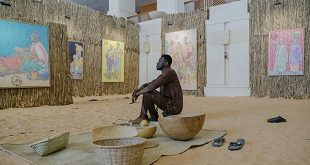Historical precedent
South Africa is sub-Saharan Africa’s second-richest country, after Nigeria, and has the continent’s highest COVID-19 case load, with around 566, 109 infections reported as of Aug. 11. There, too, research links are an essential tool for sourcing materials such as protective gear for medics, test kits and experimental drugs, says Daan du Toit, who runs international cooperation at the government’s Department of Science and Innovation. “The networks and personal relations fostered through them over many years (are) playing a crucial role to facilitate access to materials,” he says.
That’s a lesson from the early days of the country’s ongoing HIV epidemic, says Glenda Gray, president of the South African Medical Research Council in Cape Town. As infections and deaths began to climb rapidly in the 1990s and early 2000s, South Africa’s government claimed it could not afford to subsidise newly developed antiretroviral drugs — although one of the reasons for this resistance was a belief among leading politicians that HIV did not cause AIDS. Internationally funded research programmes could get around these barriers, and, at first, it was through them that South Africans with low incomes could access the lifesaving drugs.
The close links between HIV research and the rollout of antiretroviral drugs in South Africa meant that doctors who were involved in research programmes became the most skilled at managing the disease, Gray says. She thinks that this will happen with COVID-19, too.
The researchers interviewed for this article were keen to point out that international links do not diminish the importance — or the existing work — of national research organisations. Research done locally is also essential to building confidence in new treatments among the public and the medical community, says Soumya Swaminathan, chief scientist at the World Health Organization in Geneva, Switzerland.
Back in Kampala, Joloba’s lab is using its gifted test kits to carry out Uganda’s first survey of community transmission of the coronavirus. The country’s early lockdown has kept case numbers low, and most people found to be infected have been travellers or truck drivers from neighbouring countries. But to start to ease the lockdown, the government needed to know transmission levels with greater precision. Through its testing, the Makerere lab is starting to reveal hotspots of infection.
And in Accra, Awandare hopes that scientists’ role in the coronavirus response will convince African governments to increase their funding, so that the next time there is a disease outbreak, they can act more independently. “We hope that this will create lasting impressions on the politicians, so that after the pandemic is over they will remember to invest sustainably in science,” Awandare says.
****
Source: Nature Research Journal
 The Independent Uganda: You get the Truth we Pay the Price
The Independent Uganda: You get the Truth we Pay the Price

